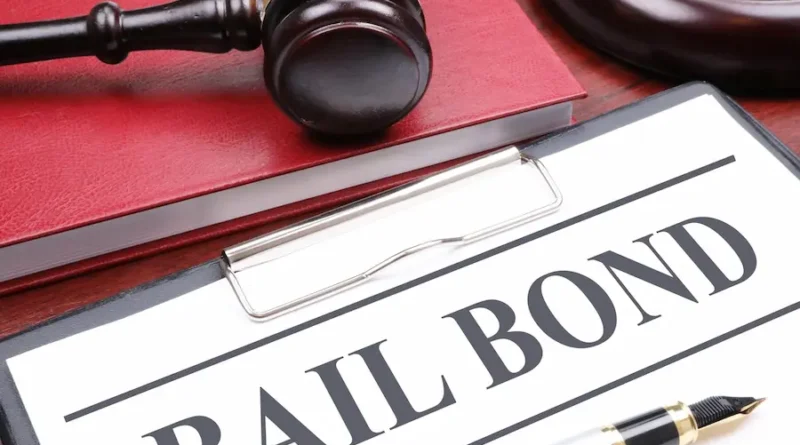Collateral and Co-Signers: Navigating the Complexities of Bail Bond Agreements
The Role of Collateral in Bail Bonds
Engaging with the bail bond system can be bewildering, especially when assets are at stake. According to professionals in bail bonds Scranton, PA, collateral is essentially the linchpin of securing a bail bond, particularly in places where bail bond agents commonly require substantial assurance that the defendant will comply with their court obligations. Collateral comes in many forms, with anything from real estate, vehicles, cash, or even valuables like jewelry being acceptable. Its primary role is to mitigate the risk the bond company takes when they post bail, and its value often equals or exceeds the bond amount.
Potential bail bond signers should be acutely aware of the consequences of putting up collateral. Should a defendant fail to adhere to the stipulations of their release, the collateral may become forfeited, leading to a significant financial loss. This stark reality underscores the gravity of using personal assets to secure bail. Nonetheless, once the trial process has ended, and assuming the defendant has met the conditions of their release, the law typically provides for the release and return of the collateral, barring any complications.
Responsibilities of a Co-Signer in Bail Agreements
The co-signer is one of the most pivotal characters in the plot of posting bail. They play an immense role by shouldering significant responsibilities and ensuring the defendant’s compliance. Undertaking the role of a co-signer is a gesture of trust; however, it is also fraught with potential legal and financial pitfalls. The co-signer is responsible for ensuring that the defendant appears at all required court appearances and assumes a great deal of financial liability, which could encompass paying the full amount of the bail bond and additional expenses incurred if the defendant fails to appear in court.
The legal landscape that co-signers must navigate is complex, with repercussions that can affect their credit and finances and even initiate legal actions against them. Awareness and understanding of these stipulations are paramount. For individuals stepping into the role of co-signer, certain protections are afforded to them, including the right to provide information that may return the defendant to custody if they suspect non-compliance with bond conditions. This safety net aligns with the co-signer’s interests, giving them control over the agreement they’re entering into.
Evaluating Bail Bond Options
Delving into the world of bail bonds introduces a mosaic of options, each with its own set of distinct terms. Critical to the selection process is understanding the various bond types: surety bonds, cash bonds, property bonds, and, in certain instances, own recognizance release, which do not require any financial outlay but rely on the defendant’s promise to return for court proceedings. This decision should not be made lightly and must reflect the individual’s fiscal capabilities and the nature of their legal entanglement.
Choosing the right bail bond service is almost as vital as choosing the bond itself. Evaluating the credibility and reliability of the service provider can prevent future complications. Conduct research, seek referrals, and consult to get a firm grasp of the bondsmen’s expectations. Inquiring about their operational hours, fee structure, and the fine print of their services would behoove anyone seeking a bail bond. Knowledge is powerful in these circumstances, as misconceptions can lead to a more precarious financial situation.
It is also wise to remember that the bail bond agent is there to facilitate your needs. Building a relationship based on clear communication and understanding can be the difference between a smooth and arduous process. Ensuring that you, as the defendant or co-signer, have complete clarity on the bail bond terms can help avert common missteps that complicate the already challenging experience.
The Legal Framework Surrounding Bail Bonds
The bail bond landscape is extensively shaped by its legal context, and this legal context can vary dramatically from one jurisdiction to another. Understanding the local statutes, regulations, and judicial precedents related to bail bonds is essential for those navigating this complex terrain. Each state has its legal tenets regarding bail bonds, affecting everything from the types of bonds permissible to the rights and responsibilities of those involved.
Courts are the central authority in determining bail, exercising broad discretion within the framework of state law. They decide the bail amount and conditions for release and manage the process for any breaches of bail. Defending and co-signers must recognize the court’s role and appropriately prepare for their interactions with this institution.
Keeping abreast of legal developments, such as those highlighted in NCSC’s study on bail practices, can give stakeholders a deeper understanding of the current trends and challenges facing the bail system, empowering them to make well-informed decisions and advocate for rights effectively within the legal system.
Visit the rest of the site for more interesting and useful articles.

